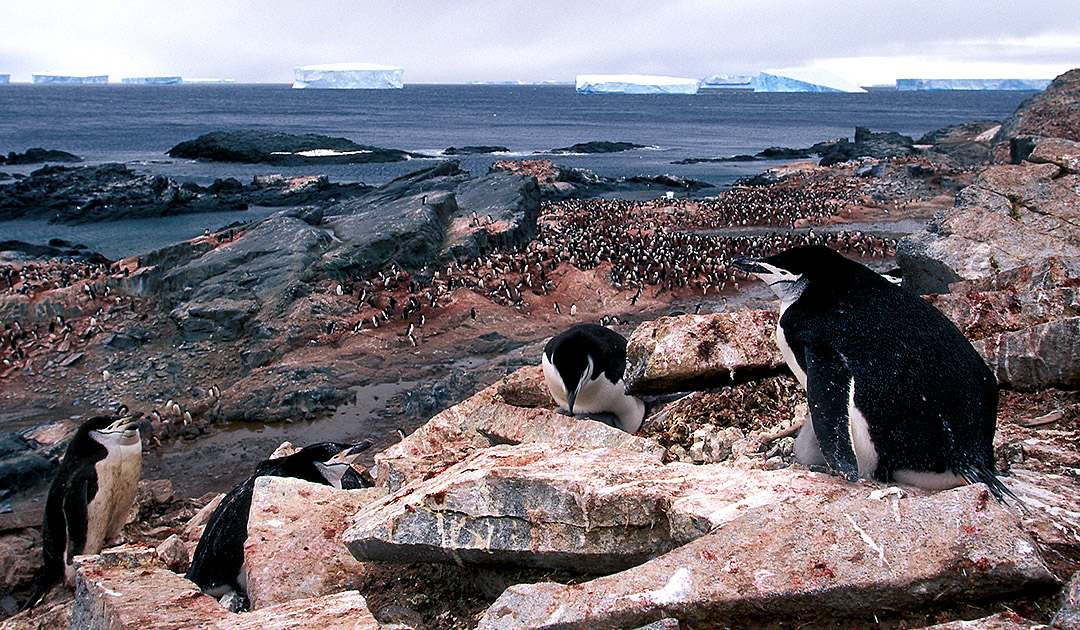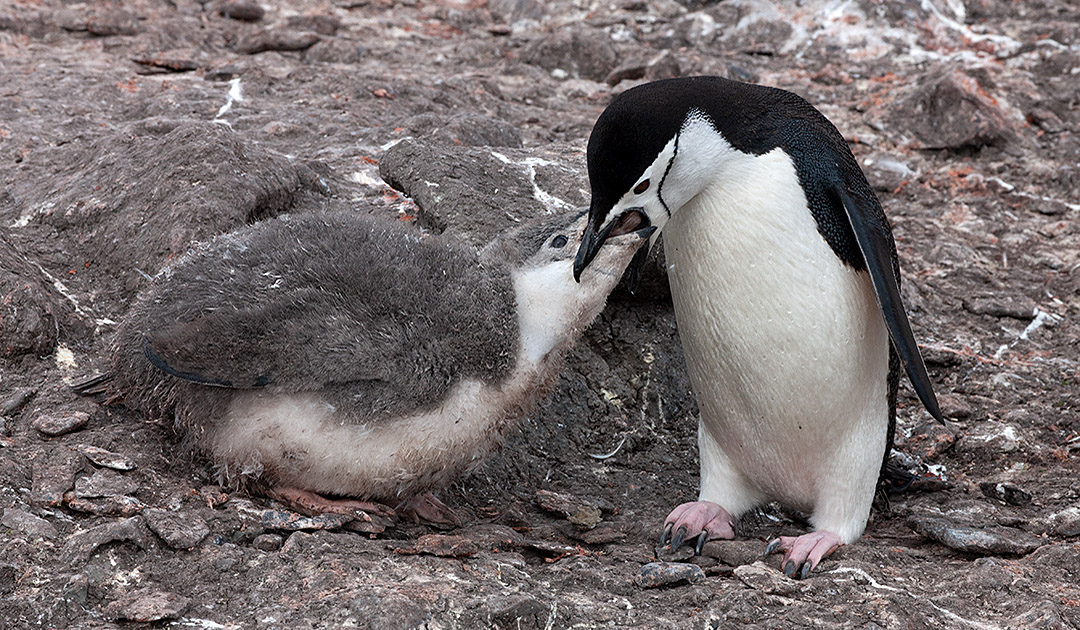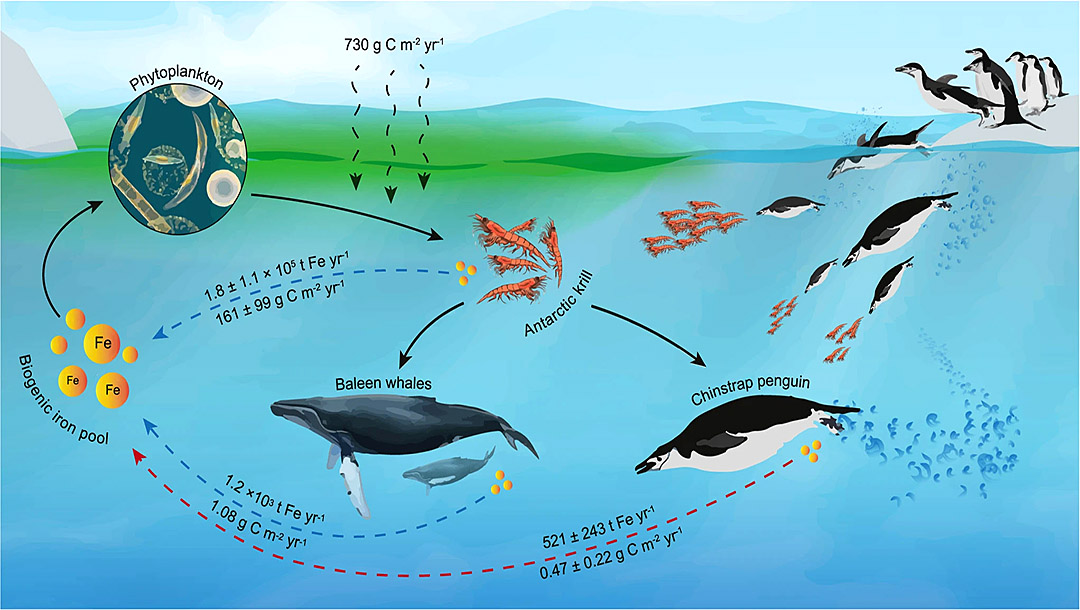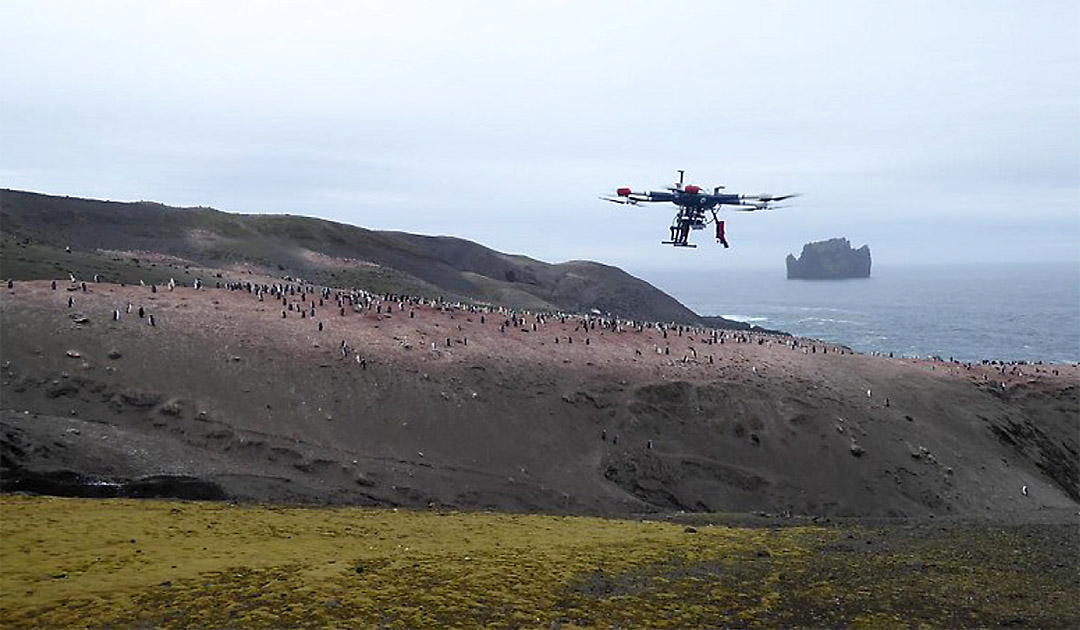
Iron is an extremely important element that turns our blood red and keeps the immune system in shape. But not only humans need iron, the ocean needs it too. Now the decline of penguins is impacting the iron cycle in the Southern Ocean. This in turn is important for the natural function of the ocean as a carbon sink. A Spanish research group led by Oleg Belyaev from the Institute of Marine Sciences in Andalusia has taken a closer look at the feces of chinstrap penguin colonies. The study was published in Nature Communications and shows a sharp decline in iron in the Southern Ocean.

It is known that in the Southern Ocean there are nutrient-rich and chlorophyll-poor areas, which means that the growth of plankton in the latter must be controlled by something else – and indeed, in such places, this process depends on iron. These areas are also inhabited by millions of iron-rich Antarctic krill(Euphausia superba) that feed on phytoplankton. And krill itself is an important food source for a number of species, including baleen whales and seabirds.
Previously, researchers have studied the process of iron recycling in the ocean, but only looked at the chain between whales, krill and phytoplankton. Now researchers believe that penguins, which represent the largest biomass of seabirds in the Southern Hemisphere, actually play a more important role in this process than scientists previously thought.
Penguins, especially chinstrap penguins(Pygoscelis antarcticus), were found to make a special contribution to iron recycling in the Southern Ocean. Scientists know that their diet is 90% krill, and research indicates that chinstrap penguins return about 521 tons of iron to the ocean each year through their feces, also called guano.

For the study, the scientists used a deep-learning model and counts of chinstrap penguin colonies, as well as description records of nesting sites. The researchers then estimated the size of the penguin colonies using drone data, which helped them estimate the amount of guano. Next, the researchers compared the numbers to previous decades and found that their population has declined by more than half in the last 40 years.
The team believes that penguins returned twice as much iron to the ocean in the 1980s than they do today. All this indicates that the process of iron recycling in the Southern Ocean is disturbed.

The scientists note that the main problem is that iron is vital to the ocean because it helps sequester carbon. The lack of iron input inhibits primary production, i.e., the growth of plankton, which in turn leads to a decrease in carbon sequestration. All of this means that the effects of climate change will only be felt more acutely in these regions in the foreseeable future, Oleg Belyaev and his team are convinced.
Heiner Kubny, PolarJournal
Link: to the study in Nature Communications
More on the topic





